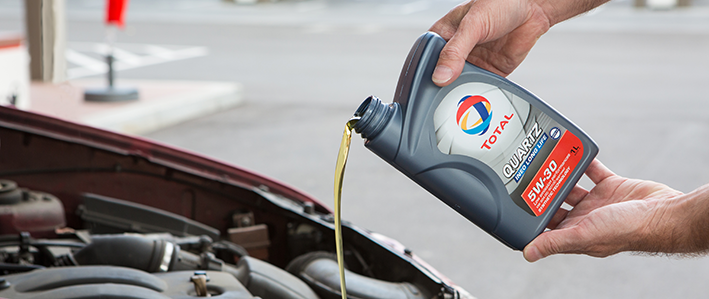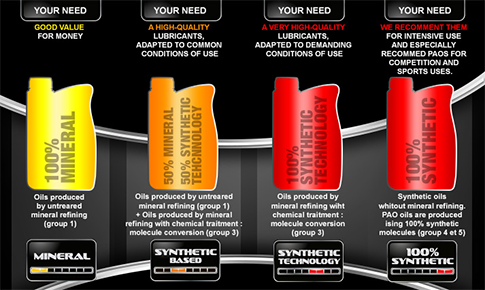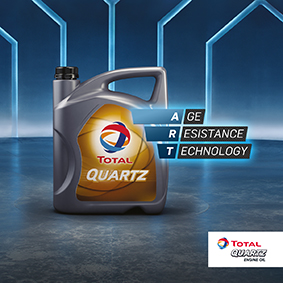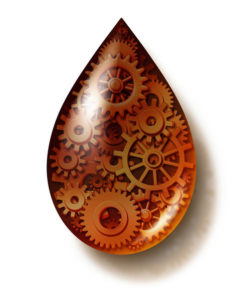Why is Engine Oil so Important?
Engine oils must be able to lubricate the many intricate moving parts in a vehicle. As they are operating under constant duress it’s imperative that engines are always protected. Therefore, engine oils must be able to perform several essential functions such as:
- Protecting the engine against corrosion and tear as oil oxidises
- Reduces metal to metal contact by creating a film of oil.
- Remove impurities to the oil filter and clean current deposits
- Acts as a seal space between the piston and cylinder.
- Helps to cool the engine
Base Oil
Produced from refined crude oil (mineral-based oil) or chemical synthesis (synthetic base oil) base oil usually makes up between 70-99% of the lubricant. The American Institute of Petroleum (API) separated base oils into 5 distinct groups several years ago, 3 groups solely dedicated to mineral oils, with the other 2 containing synthetic oils.
Group I: The least refined type, group I usually comprises of conventional petroleum base oils. The API defines them as base stocks that contain less than 90% saturates and/or greater than 0.03% sulfur. They also have a viscosity index that is greater than or equal to 80 and less than 120.
Group II: These are considered a better grade of base oil, partly produced by hydrocracking. Impurities are removed leading to a much clearer colour. API defines group II as base stocks containing greater than or equal to 90% saturates and less than or equal to 0.03% sulfur. They also have a viscosity index that is greater than or equal to 80 and less than 120\”.
Group III: The best grade of petroleum base oil, group III are produced completely hydrocracking with several refining methods that make the oils purer. This group may be described as “synthetic technology but is usually known as synthetic oil.
Group IV: These consist of synthetic oils made of Poly-alpha-olefins (PAO). Group IV base oils have a viscosity index range of 125 – 200. PAO oils are considerably more stable in extreme temperatures, which make them much more suitable for use in very cold weather as well as very hot weather
Group V: Group V is any other base oils that are not mentioned in the groups above.
Types of Engine Oil
There are three main types of engine oils: mineral oil, synthetic oil, and semi-synthetic oil. Each of these engine oils has a different composition: the base is either refined crude petroleum or else polymers that are manufactured in laboratories.

Mineral oil: How is it Made?
As we have seen, mineral oil is made from crude petroleum. Once it has been transported to a refinery, it undergoes several refining procedures to remove as many impurities as possible. This oil mainly consists of hydrocarbons (oxygenated or non-oxygenated), but in certain cases, can contain trace amounts of compounds such as sulphur or nitrogen. After processing, additives are then added to the mineral oil to help with their performance.
How do you make synthetic oil?
Synthetic oil can be created chemically in the laboratory, but it can also be made from refined petroleum. Refining synthetic oil is a much more complex process than for mineral oil. Refining it involves modifying the structure of the hydrocarbon molecules to ensure that only the best molecules are retained. Many additives are also added. Given its composition, “synthetic engine oil” are considered high-end lubricants that are purer and delivers higher performance than mineral oil.

What is semi-synthetic oil made of?
Semi-synthetic oil is a blend of synthetic oil and mineral oil. The name can be a little misleading as the proportions in the mixture are not equal: semi-synthetic oil contains at most 30% synthetic oil. In fact, an engine oil carrying as little as 1% of synthetic oil is also called semi-synthetic oil.
Why does engine oil contain additives?
Whether they are mineral or synthetic based, nearly all engine oils contain additives. Additives are chemical compounds that are designed to improve the performance of the base oil in several areas. Over time, engine oil begins to oxidise or breakdown, and is less effective in lubricating the moving parts. It is extremely rare that engine oil can perform all the essential tasks to protect the engine without some help. Additives, to name but a few can enhance the current composition of the base oil with properties such as antioxidants, anti-foam agents or corrosion inhibitors.
Types of Additives Found in Engine Oil
Detergent additives: The main function of a detergent additive is to remove the deposits and microparticles that form on surfaces when the vehicle is operated.
Dispersant additives: Dispersant additives keep all the deposits and impurities in suspension, stopping deposit build-up on engine parts. The deposits are then carried to the oil filter.
Anti-foam additives: A problem of using detergent additives is that they can generate foam on the surface of the oil, preventing proper lubrication. This additive is used to prevent the foaming from happening.
Anti-wear additives: Also called friction modifier additives, anti-wear additives add a layer of solid oil that lubricates the engine as soon as the vehicle starts up, avoiding friction between parts. This additive is mostly used in mineral oils.
Corrosion inhibitor additives: An engine is made of metal parts that are extremely sensitive to rust. To counteract this, corrosion inhibitor additives protect parts from rust.
Viscosity index modifiers: These additives are extremely sensitive to temperature and help to reduce the difference in viscosity between hot and cold oil.
Antifreeze additives: These additives help adapt the various motor oils to their environment by modifying the oil’s hardening temperature. They increase the fluidity of cold oil.
Always remember that the oil you are buying has been created to perform specific functions that have been laid out by the equipment manufacturer. The additives found in oils are balanced specifically to perform these functions. Adding additional additives will adversely affect this balance, lowering performance. Always follow the instructions in your manufacturer’s manual.

Total Quartz with Age Resistant Technology
As engines designed to be faster, efficient and more dynamic. These advancements bring with them new challenges as higher temperatures and pressure increases oil degradation. This is where Total Quartz with Age Resistant Technology, a revolutionary breakthrough, comes into play. With over 15,000 hours of testing and engineering to boost product performance, Total Quartz with ART reinforces oil molecules and aims to be more resistant to oxidation, helping to combat sludge and wear and a wide range of benefits including:
- Better protection under extreme temperatures
- Optimal Engine Performance
- Increased Fuel Economy
This innovative lubricant technology provided by Total can transform a car owner’s experience on the road as well as save maintenance costs. To view the full range of Total Quartz products with ART technology by viewing our full range of synthetic engine oils or use our which oil app to find out which of these innovative products is best suited for you. You can contact one of our highly trained technical team members at 01-455 5484.


